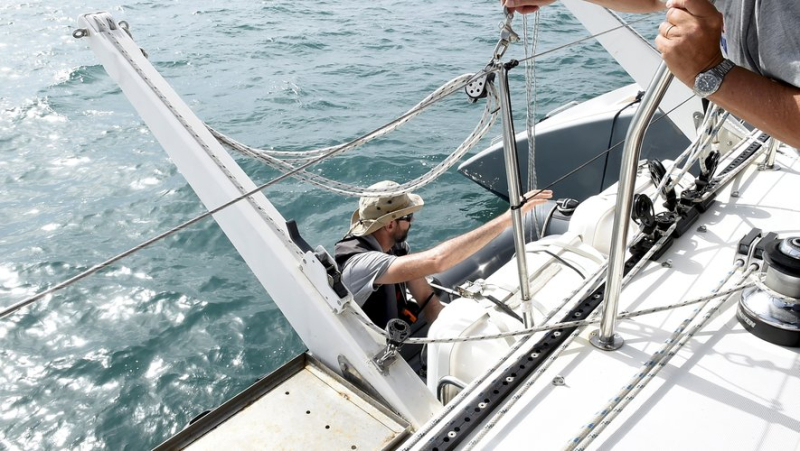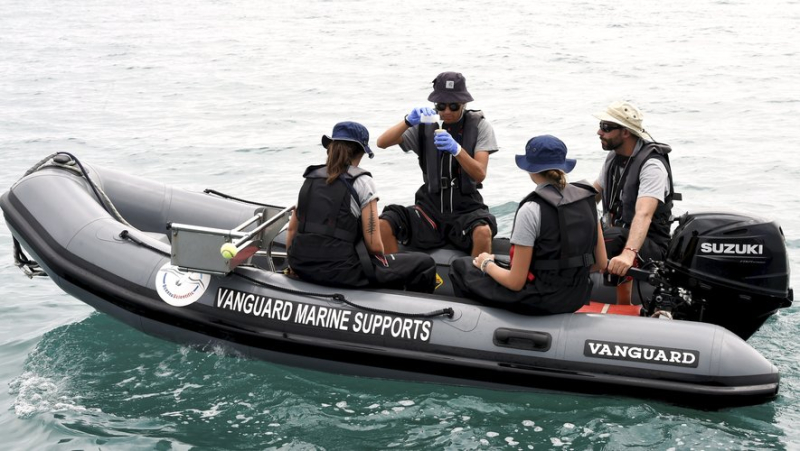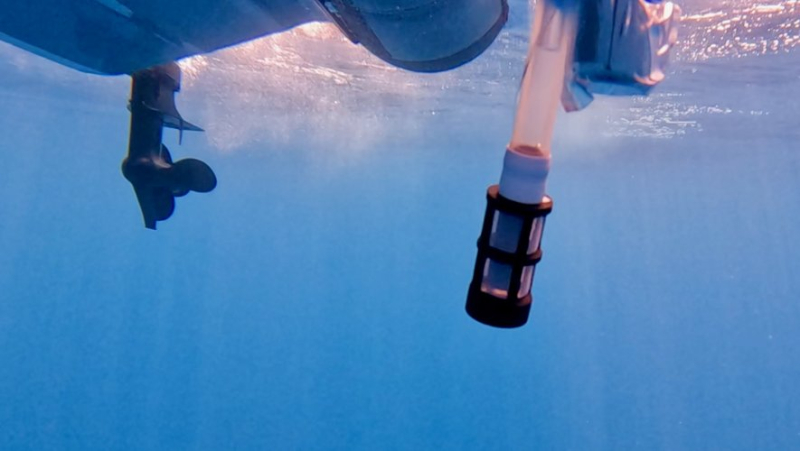Pollution: thanks to its rich biodiversity, “the Mediterranean is recovering but it is not doing so badly”

The environmental AND technique has made it possible to reveal the richness of biodiversity. Midi Libre – SYLVIE CAMBON

BioDivMed, une mission commencée l’an passé. Midi Libre – SYLVIE CAMBON

L’ADN environnemental s’est révélé être une technique très précieuse. OceanoScientific
Retour sur la mission scientifique BioDivMed qui a scientifiquement démontré que le littoral méditerranéen français est riche "d’une incroyable biodiversité en poissons et crustacés".
Although suffering, among the most polluted seas in the world, the Mediterranean is doing better. "She is convalescent, but she is not doing so badly”, estimates ecologist David Mouillot who directs the BioDivMed mission launched in spring 2023. And who estimates that after "during the dark years, we noted a few islets, a few refuges which left hope, particularly in the Banyuls area, the Embiez area or Corsica… These are areas where biodiversity is still well preserved and incredibly rich".
The mission has just revealed the first results of its scientific mission intended to identify marine biodiversity in the Mediterranean through the analysis of 700 samples of environmental DNA (eDNA) on more than 2’ ;nbsp;000 kilometers. The first conclusions bring a message of hope: "Contrary to what we think, the Mediterranean is sometimes under pressure in certain sectors but it is doing better thanks to the actions initiated since the 2000s", underlines expert Pierre Boissery, from the Rhône Méditerranée Corse Water Agency, who has been studying the water quality of the Big Blue since the early 1990s.
"When we were confined, the marine life was deconfined"
BioDivMed makes it possible to draw up the first mapping of the marine biodiversity of the French Mediterranean coastal zone, including lagoons, river mouths and ports, up to the Pelagos sanctuary between Corsica and the continent. "There are more critical places off the coast of Sète, near Marseille or on the Côte d’Azur", recalls Professor David Mouillot. Where the footprint of man, fishing, mass tourism, boat movements are incessant.
But scientists plead for a "balance of uses. This study shows that in the absence of human activities, the environment recovers very quickly. We saw it during Covid: when we were confined, marine life was deconfined", illustrates Pierre Boissery. During this period we found an increase of 30% more fish in the sea on the Mediterranean coasts.
"We need time"
A sign that actions are bearing fruit is the discovery of species that were thought to be extinct. The small problem in this chorus of good news is that changes come slowly. "The effectiveness of the actions is not immediate. The environment does not react immediately. We need time and it’s complicated", underlines the expert.
The study, which provides comprehensive insight into biodiversity, will also make it possible to determine actions likely to be implemented to protect species. raquo;, indicates David Mouillot. It can serve as an alert to determine the sectors where action is necessary, guide public policies, by limiting uses, reduce boat speeds to reduce noise, set up projects to combat pollution or areas marine areas by extending certain protection zones.
Sustainable fishing
According to Yvan Griboval, the captain of the catamaran Love The Ocean on board which the mission was carried out, this study can also "potentially make coastal fishing sustainable for a sustainable short circuit power supply. With environmental DNA we will be able to give information to fishermen on sectors in tension and the presence and density of species in sectors that they never frequented"< /em>.
A good way to replenish the resource: "Marine protected areas will gain momentum. It’s all about knowing how to place them. This is the responsibility of politics and we hope that our cards will help them", underlines David Mouillot. To continue the convalescence of the Mediterranean and allow it, one day, to regain its full health.
I subscribe to read more




